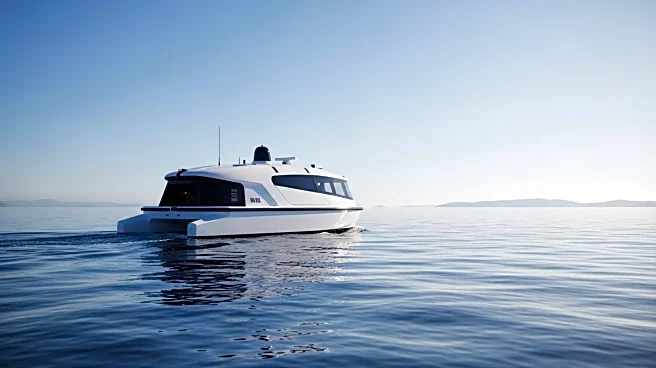What's Happening?
HavocAI, a startup specializing in uncrewed and autonomous surface vehicles, has successfully raised $85 million in new capital to enhance its production capacity and technology integration capabilities. The Providence, Rhode Island-based company aims to develop self-organizing fleets managed by a single operator. HavocAI's strategy focuses on software-first approaches, partnering with existing shipyards to build uncrewed vessels. The capital raise includes investments from In-Q-Tel and Lockheed Martin Ventures, along with other notable investors such as B Capital and Hanwha. HavocAI plans to expand its fleet with new vessels, including a 100-foot multi-mission vessel.
Why It's Important?
The funding marks a significant milestone for HavocAI, enabling the company to advance its autonomous maritime technology and expand its operational capabilities. This development is crucial for the defense and maritime industries, as autonomous surface vehicles offer strategic advantages in surveillance, reconnaissance, and logistics. The involvement of high-profile investors like Lockheed Martin Ventures underscores the potential impact of HavocAI's technology on national security and defense operations. The expansion of autonomous fleets could lead to increased efficiency and reduced operational costs in maritime activities.
What's Next?
HavocAI plans to continue its growth by adding more vessels to its fleet and enhancing its collaborative autonomy stack. The company may explore further partnerships with defense contractors and shipyards to accelerate production and integration of its technology. As HavocAI expands its capabilities, it could play a pivotal role in shaping the future of autonomous maritime operations, potentially influencing policy and regulatory frameworks in the industry.
Beyond the Headlines
The rise of autonomous surface vehicles raises questions about the future of maritime labor and the ethical implications of uncrewed operations. As technology advances, there may be shifts in employment patterns within the maritime industry, requiring new skill sets and training programs. Additionally, the integration of autonomous systems must address concerns related to safety, security, and environmental impact, ensuring responsible and sustainable deployment.









